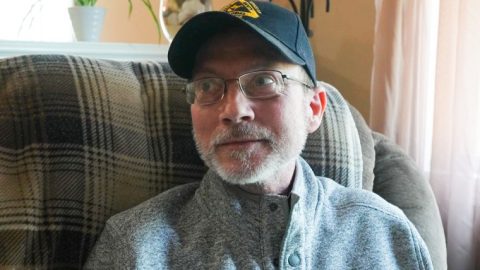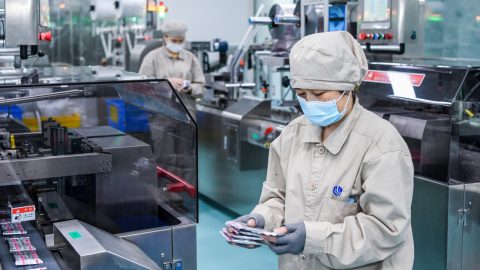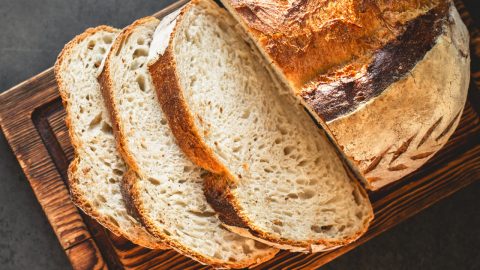Brandi Williams had been up for two straight days smoking crack cocaine when she realized she was going into labor.
It was a cold Tennessee morning in December 2014, and Williams had to pull herself together to get to a hospital. She borrowed a car from a friend whose excessive alcohol use required him to have a breathalyzer attached to the car’s starter.
“Here I am in full-blown labor, driving myself and I can feel the baby’s head, like, right there,” Williams recalls. “And I’m having to blow in this damn machine or the car would shut off.”
She made it to the hospital in time. As she walked through the doors to give birth to her daughter, Williams made one last preparation before delivery.
She tossed her crack pipe into a trash can.

Underneath Williams’ raw honesty lies a layer of sad humility. “I was ashamed that I was still getting high while pregnant. I was ashamed because I couldn’t quit.”
Treatments for drug addiction during pregnancy are safe for both the mother and the baby, doctors say. Methadone and buprenorphine, for example, can reduce cravings and help users carry a pregnancy full term, without long-lasting effects on the baby.
But shame and stigma, the same that Brandi Williams felt, stop many pregnant women from seeking help.
A bigger deterrent, however, is the crippling fear that their babies will be taken away by state welfare authorities. Some states, based on their interpretation of a federal law, view substance use during pregnancy as child abuse so heinous that it deserves criminal prosecution.
That’s why a growing number of experts — including maternal/fetal specialists, federal health officials and people who treat addiction — are calling for changes to the laws.
“We should remove criminalization of women who are pregnant and taking drugs,” Dr. Nora Volkow, head of the National Institute on Drug Abuse (NIDA), said in an interview. “That needs to stop.”
Substance use disorder “does not diagnose anyone’s ability to parent,” said Dr. Hendrée Jones, executive director of the University of North Carolina’s Horizons Program, a drug treatment program.
“I have a woman getting ready to deliver, and she is terrified that somehow they’re going to find drugs in her system and Child Protective Services is going to be called and her baby’s going to be snatched away,” Jones said.
A study published Wednesday in the Maternal and Child Health Journal that included 26 pregnant women in Massachusetts found that the decision whether to take anti-addiction medicines “was entirely wrapped up in what happened with respect to mandated reporting to Child Protective Services at the time of delivery,” said Dr. Davida Schiff, the study author and an addiction medicine specialist at Massachusetts General Hospital in Boston.
Women in the study felt “intense anxiety and stress” under the threat that they would be reported to CPS.
“This has led to many women either deciding to not start life-saving medication during pregnancy or to wean off of that life-saving medication during pregnancy and really risk poor outcomes for themselves and their babies,” Schiff said.
The effects are not limited to Massachusetts.
“Across the entire country, we’re seeing a general trend toward more punitive policies, and those are kind of the policies that consider substance use during pregnancy to be child abuse or neglect,” said Laura Faherty, a policy researcher at the RAND Corporation.
Calls for change have an urgent timing.
The rate of women with opioid-related diagnoses at the time of delivery increased by 131% from 2010 to 2017, according to a 2019 study. Research is ongoing, although addiction experts expect yet another significant rate increase after 2017.
And the No. 1 cause of preventable death among pregnant and postpartum women in particular isn’t pregnancy-related at all. It’s drug overdose, NIDA’s Volkow said.
“We know that mortality from overdoses is greater in women that are pregnant than counterparts of the same age that are not pregnant,” Volkow said. “This is extraordinarily important because it’s telling us that there’s something that is making these pregnant women more vulnerable.”
According to a study published last year, the number of pregnant women and new mothers dying of drug overdoses reached a record high in 2020: 11.85 per 100,000, up from 6.56 per 100,000 in 2017.
‘Fetal personhood’ and substance use
In 1974, Congress passed the Child Abuse Prevention and Treatment Act, known as CAPTA. It requires states to have a plan in place to address and respond to child abuse and neglect.
The law has been revised over time, and now includes a provision that suggests child abuse can include babies born affected by drug withdrawal.
It is up to each state to determine how to interpret CAPTA.
Twenty-five states and Washington, D.C. consider substance abuse during pregnancy to be child abuse, according to the Guttmacher Institute, a reproductive health and policy research group. Those states require health care professionals to report any suspected prenatal drug use to authorities.
But doctor-prescribed medications that pregnant users take to counter addiction, such as methadone or suboxone, can show up temporarily in newborns without long-lasting health effects, doctors say.
“We know that medications for opioid use disorder decrease risk of overdose deaths. They also improve pregnancy outcomes. It makes it more likely babies” will be born full term, said Dr. Stephen Patrick, a neonatologist and director of the Vanderbilt Center for Child Health Policy in Nashville.
Local communities and even individual hospitals may further interpret the law differently, leaving many expectant mothers and their doctors unsure about how to comply, if at all.
Indeed, a growing number of experts worry CAPTA and its state interpretations have gone too far when it comes to the definition of “abuse” in utero.
“The intention of the law may not have been punitive, but the way it plays out in any particular community or in any particular child welfare office can sometimes feel punitive,” said Dr. Marian Jarlenski, associate director of the Center for Innovative Research on Gender Health Equity at the University of Pittsburgh Medical Center.
“This is likely to become much more complicated as states are banning or criminalizing abortion care. We’re moving into a ‘fetal personhood’ situation,” Jarlenski said.
Others say the criminal focus on substance use during pregnancy is misguided.
“What is the problem we’re trying to solve?” said Patrick. “I treat far more complications from untreated diabetes in the NICU than I do from opioid use disorder.”
“Imagine if we approached someone with uncontrolled diabetes and said, ‘Listen, if your baby’s born weighing 12 pounds because you have uncontrolled diabetes, you may have child welfare involvement,'” Patrick said. “That sounds crazy.”
Pregnant women left without help
Use of both legal and illegal substances has skyrocketed in recent decades, so it should come as no surprise that many women are already drinking alcohol or using drugs, like opioids, when they become pregnant.
Yet, resources to help these women who become pregnant can be hard to find.
“Addiction specialists can be kind of reluctant or hesitant to treat pregnant people,” Dr. Jeannie Kelly, medical director of maternal-fetal transport at the Washington University School of Medicine in St. Louis. “It can be a really daunting group of patients to treat because you’re worried” about which treatments are safe during pregnancy.
“On the flip side, obstetricians traditionally aren’t very well trained in addiction care,” Kelly said.
We’re left with a “perfect storm that leaves patients without anyone who feels comfortable taking care of them,” she said.
A path to sobriety
That day in 2014, Brandi Williams knew she would not be able to bring her newborn daughter home to a dangerous environment in which, Williams said, she couldn’t even take care of herself. She gave the baby up for adoption, but keeps in touch with the family who has been raising her.
The little girl suffered no long-term health consequences. “She is so freaking smart,” Williams said proudly.
Williams, now age 40, got sober in 2021 with the help of suboxone. She remains on the drug because “it beats the hell out of me sticking a needle in my arm.”
Williams has a steady job and is pursuing a degree in psychology so she can one day provide substance use counseling to others in need.
“If I can come out of something like this, everybody can come out of it,” Williams said. “You just gotta want it bad enough.”
Follow NBC HEALTH on Twitter & Facebook.









Recent Comments